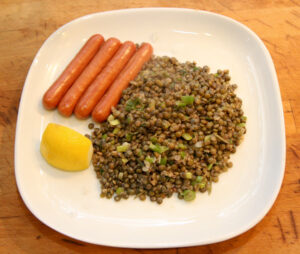Health Benefits of a Vegan Diet

Switching to a vegan diet can feel like stepping into a whole new world. I remember when I first made the transition; it was like opening a door to a vibrant garden of flavors and possibilities. The decision wasn’t just about cutting out animal products; it was about embracing a lifestyle that promised a plethora of health benefits. Today, I want to share the health benefits of a vegan diet, drawing from both scientific insights and personal experiences.
Top 7 Health Benefits of a Vegan Diet
A Heart-Healthy Choice
One of the most significant health benefits of a vegan diet is its positive impact on heart health. Plant-based diets are naturally low in saturated fats and cholesterol, which are often found in animal products. Instead, they are rich in fiber, antioxidants, and healthy fats from sources like nuts, seeds, and avocados. These nutrients work together to lower blood pressure, reduce cholesterol levels, and decrease the risk of heart disease.
I recall a conversation with my uncle, who had been struggling with high cholesterol for years. After switching to a vegan diet, his cholesterol levels dropped significantly, much to the surprise of his doctor. It was a testament to the power of plants in promoting cardiovascular health.
Weight Management and Metabolic Health
For those looking to shed a few pounds or maintain a healthy weight, a vegan diet can be incredibly effective. Plant-based foods are generally lower in calories and higher in fiber, which helps you feel full and satisfied without overeating. This can lead to natural weight loss and improved metabolic health.
I experienced this firsthand when I noticed my clothes fitting a bit looser after a few months of eating vegan. It wasn’t just about the number on the scale; it was about feeling lighter and more energetic. Plus, the variety of delicious vegan recipes kept me excited about mealtime, making it easier to stick to my health goals.
Boosting Digestive Health
A vegan diet is a boon for digestive health, thanks to its high fiber content. Fiber is essential for maintaining a healthy gut, promoting regular bowel movements, and preventing constipation. It also supports a diverse and balanced gut microbiome, which is crucial for overall health.
I remember my friend Sarah, who struggled with digestive issues for years. After adopting a vegan diet, she noticed a significant improvement in her digestion and overall well-being. She often jokes that her “gut is happier than ever,” and she credits her plant-based lifestyle for this positive change.
Reducing the Risk of Chronic Diseases
Research has shown that a vegan diet can reduce the risk of several chronic diseases, including type 2 diabetes, certain cancers, and hypertension. The abundance of antioxidants, phytochemicals, and anti-inflammatory compounds in plant foods plays a crucial role in disease prevention.
For instance, legumes, whole grains, and leafy greens are packed with nutrients that help regulate blood sugar levels and improve insulin sensitivity. This makes a vegan diet an excellent choice for those at risk of or managing diabetes.
Enhancing Skin Health
Who doesn’t want glowing, radiant skin? A vegan diet can contribute to healthier skin, thanks to its high intake of fruits and vegetables rich in vitamins, minerals, and antioxidants. These nutrients help combat oxidative stress, reduce inflammation, and promote skin repair.
I noticed a visible difference in my skin’s texture and clarity after a few months of eating vegan. It was as if my skin was thanking me for the extra dose of nutrients. Plus, staying hydrated with plenty of water and herbal teas only added to the glow.
Environmental and Ethical Considerations
While the focus here is on health, it’s worth mentioning the environmental and ethical benefits of a vegan diet. By choosing plant-based foods, you’re reducing your carbon footprint, conserving water, and supporting sustainable agriculture. It’s a win-win for both your health and the planet.
Personal Insights and Real-World Examples
Transitioning to a vegan diet was a journey of discovery for me. I remember the first time I made a vegan lasagna for my family. My dad, a lifelong meat lover, was skeptical at first. But after one bite, he was hooked. “This is actually really good,” he admitted, reaching for seconds. Moments like these remind me that vegan food can be both nourishing and delicious.
Cooking vegan meals has also taught me to appreciate the diversity of flavors and textures that plant-based ingredients offer. It’s like painting with a new palette of colors—each ingredient brings its own unique hue to the dish.
Conclusion
Embracing a vegan diet has been one of the most rewarding decisions I’ve made for my health and well-being. The health benefits of a vegan diet are vast, from improved heart health and weight management to enhanced skin and digestive health. Whether you’re considering a full transition or simply looking to incorporate more plant-based meals into your routine, I hope this exploration inspires you to discover the delicious and nutritious world of vegan eating. Remember, the journey to wellness is personal, and every step you take towards a healthier lifestyle is a step worth celebrating.
FAQs on Health Benefits of a Vegan Diet
1. Can a vegan diet provide all the necessary nutrients?
Yes, a well-planned vegan diet can provide all the essential nutrients your body needs. It’s important to include a variety of foods such as legumes, grains, nuts, seeds, fruits, and vegetables. Some nutrients, like vitamin B12, may require supplementation or fortified foods.
2. Is a vegan diet suitable for children and pregnant women?
A vegan diet can be suitable for people of all ages, including children and pregnant women, as long as it’s well-balanced and meets nutritional needs. Consulting with a healthcare provider or nutritionist can help ensure adequate nutrient intake.
3. How can I ensure I’m getting enough protein on a vegan diet?
There are plenty of plant-based protein sources such as lentils, beans, tofu, tempeh, quinoa, and nuts that can help you meet your protein needs. Including a variety of these foods in your diet will ensure you get all the essential amino acids.
4. Can a vegan diet help with weight loss?
Yes, a vegan diet can aid in weight loss due to its high fiber content and lower calorie density. It promotes satiety and helps prevent overeating, making it easier to maintain a healthy weight.
5. Are there any potential drawbacks to a vegan diet?
While a vegan diet offers numerous health benefits, it’s important to plan meals carefully to avoid nutrient deficiencies. Key nutrients to monitor include vitamin B12, iron, calcium, omega-3 fatty acids, and vitamin D.
Share this content:

A seasoned chef with over 10 years of experience in New York. I passionately share my journey and healthy, flavorful recipes online.












Post Comment